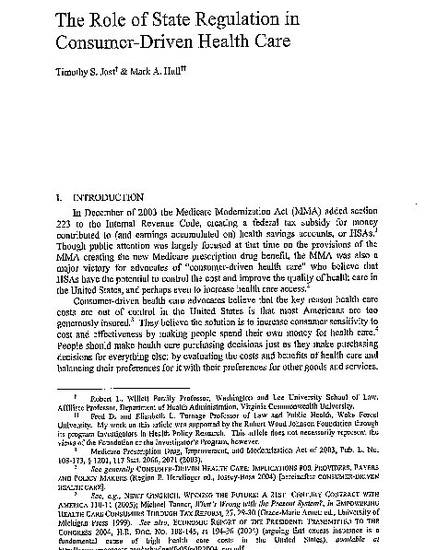
The Consumer-directed health care movement has recently been given a major boost by section 223 of the Medicare Modernization Act, which provides federal income tax subsidies for health savings accounts coupled with high deductible health plans. The federal tax subsidy, however, will only be available in states whose program of insurance regulation permits high deductible health plans to exist. The MMA represents, therefore, a new approach to federalism in health insurance - offering tax incentives for states to change their approach to insurance regulation rather than preempting state regulation or imposing federal regulation. To date the states have generally responded positively to the federal inducement by adapting their regulations to the federal model. We question, however, whether the states are fully considering the new challenges to insurance regulation raised by consumer-driven health care. This article, based on interviews with state regulators, insurance company representatives, and other experts, attempts to ask the questions that states must answer in deciding how to regulate this new form of health care finance.

Posted with permission from the copyright owner.